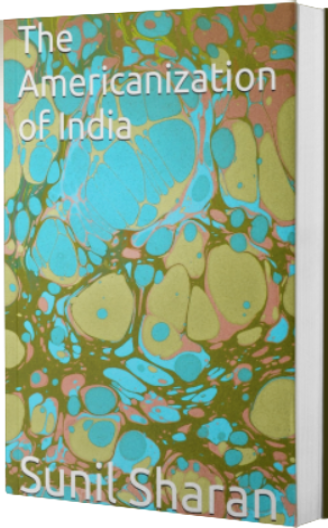Itchy Feet — Travels of a Fearful Flier is an everyday inspirational journey that resonates with us all. It tells the story of confronting life’s unexpected challenges—like debilitating illness—despite living cautiously and healthfully. Through relatable experiences and a spirit of resilience, this book leaves readers with warmth, hope, and the quiet courage to embrace life’s uncertainties. It’s a story for everyone, reminding us that even in fear, there is strength and discovery.
The Americanization of India explores the profound and complex ways America has influenced India, from the rise of retail industries to the spread of various insurance systems. The book delves into areas of tension where the two nations feel let down by each other—India’s aspiration for a permanent UN Security Council seat, which the US has not actively supported, and America’s desire to dominate India’s arms market, met with India’s insistence on diversifying its suppliers. Through these discussions, the book paints a nuanced picture of the evolving, sometimes strained, relationship between two global powers.
Country of Love, Country of Hate follows the narrator’s journey through America, starting as a young Ph.D. student at Purdue University and eventually gaining a deep understanding of the country’s social and political landscape. After an initial setback in grad school, he returns to the U.S. for a second chance at the University of Illinois, then explores Europe and the South. His time in California, and later in the Deep South, offers insights into cultural and racial challenges in America. The book delves into the narrator’s evolving views on race, politics, and society, shaped by his diverse experiences across the U.S.
In India & America: Through Wide Eyes, the narrator reflects on his experiences living in both India and the United States, with a brief stint in France, offering a unique cross-continental perspective. Now back in India after over two and a half decades in the U.S., he humorously and insightfully compares the two countries, touching on topics such as race, Islamophobia, the caste system, feminism, and consumerism. Straddling two cultures, he explores his dual identity, urging both nations to learn from each other’s strengths and weaknesses. His observations offer a thought-provoking call to action for a better future.
Skin is Their Sin explores the growing phenomenon of white bashing in America, where whites are often blamed for the country’s societal ills. The book challenges stereotypes, questioning whether whites, often depicted as racist and discriminatory, are truly to blame for America’s problems. It suggests that while whites created the system that shaped America, a shift in power to minorities from countries like Mexico and India could lead to further dysfunction. The narrative urges a more balanced perspective on race and identity in America, calling for an end to unfair blame.
An End to Immigration delves into the complex issues surrounding immigration, focusing on the consequences of mass migration to Western nations. The book examines how countries like Germany, France, and the UK, which initially welcomed guest workers, saw large-scale, permanent settlement instead, leading to cultural and social tensions. It critiques the demographic shifts, particularly in California, and raises concerns about the potential decline in Western standards due to increasing immigration. Additionally, it discusses how India’s “brain drain” contributes to its own stagnation and the challenges of reverse migration, ultimately arguing that halting immigration could improve global stability.
India’s Muslims and Lessons for the West In 1947, Muslims wanted their own country, Pakistan, and got it. Many Muslims stayed behind in India though. Today the Muslim population of India is close to 200 million, about 15% of the country’s population. Once again fissures are opening up. Muslims want to break Kashmir away from India. They have personal laws based on the sharia. Some threaten another partition of the Indian mainland, yet others want to stay with India. What does India’s experience with Islam and Muslims portent for the West? The book examines.
Inside Al Qaeda’s Plot to Nuke America Al Qaeda has been pursuing a nuclear bomb for decades, with the aim of detonating it in America. Despite an apparent change in leadership, Al Qaeda’s efforts in this direction remain unfazed. The book delineates in depth how Al Qaeda could have got the bomb and how it will explode it in America. The book also discusses America’s furious response.








